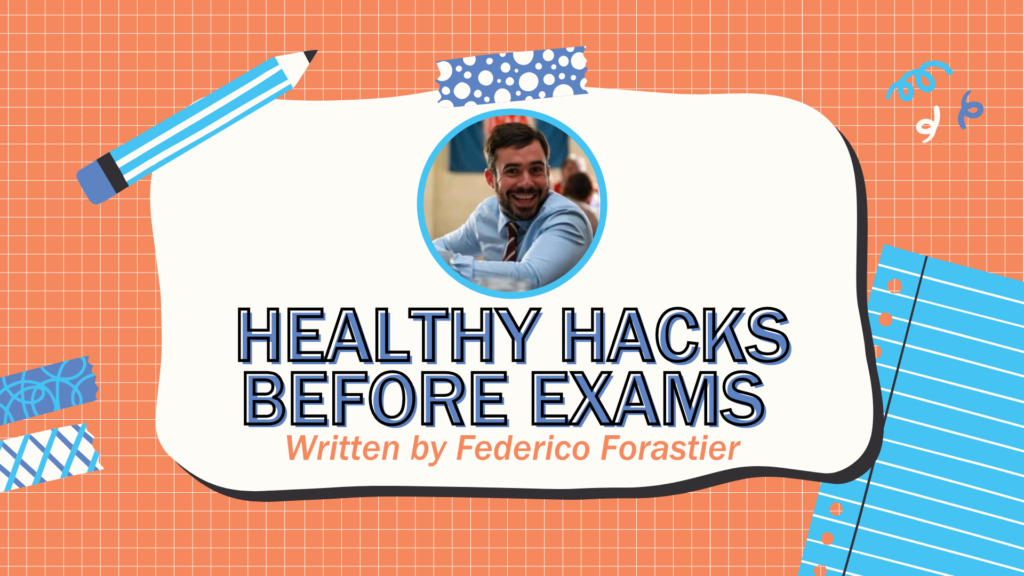Healthy Hacks Before Exams

*Disclaimer: I am not a medical professional, I am simply recommending scientifically-proven ways to improve brain health. You know your body best so keep that in mind.*
Sometimes studying for exams successfully is all about hacks, or tricks. Sometimes academic hacks are beliefs or techniques inherited from family members or teachers, but there are others that science justifies.
It has been shown that the brain can be empowered in different ways. Here are some hacks that may help you perform better on exams:
Feed your mind.
Not everything is food for the physique, our mind also needs fuel, that is, nutrients. It is not recommended to eat unnatural sugars or to consume high sources of sugar on the day of the exam. It is proven that the best fuel for the brain is ketone, the result of a diet low in sugar and high in protein and fat.
Eat a pure piece of chocolate (minimum 70% pure).
There are foods that have specific nutrients for mental processes, such as cocoa (pure chocolate). The Harvard Medical School states that cocoa is an enormous source of antioxidant flavonoids, which can accumulate in the brain, especially in regions related to learning and memory. This is one of the many superfoods that we can consume on exam day, but this is rich and easy to consume.
Rest well.
Do you feel that you can’t do your best when you didn’t sleep the night before? There is plenty of evidence on the correlation of sleep and mental abilities. The National Institute of Neurological Disorders and Stroke insists that “Sleep is important to a number of brain functions, including how nerve cells (neurons) communicate with each other. In fact, your brain and body stay remarkably active while you sleep.”
Exercise.
The Cleveland Clinic Lou Ruvo Center for Brain Health reminds us that exercise improves blood flow and memory. Exercise stimulates chemical changes in the brain that enhance learning, mood and thinking. It also reduces the odds of developing heart disease, stroke, and diabetes. Exercise helps to protect memory and thinking skills. Build activity into your daily life: dance, wash your car, walk with a friend, jog, play golf, or tennis.
For these reasons, and much more, having habits that directly affect brain health will help us to be better students and professionals!

Federico Forastier is 28 years old and currently living in Buenos Aires. He has experience from his time working in Corrientes government where he organized events, protected the image of the Security Minister, worked in internal communications and helped with both social media and press. He started studying public relations at UCES but then transferred to UADE, where the thematic is leading the scholar and employment field. His favorite topics are political communication, digital social media and diplomacy. He currently serves on the publications subcommittee for PRSSA National. Outside of these pursuits, he is an amateur musician and guitar player, a nature devotee, a fitness motivator and tennis lover.
